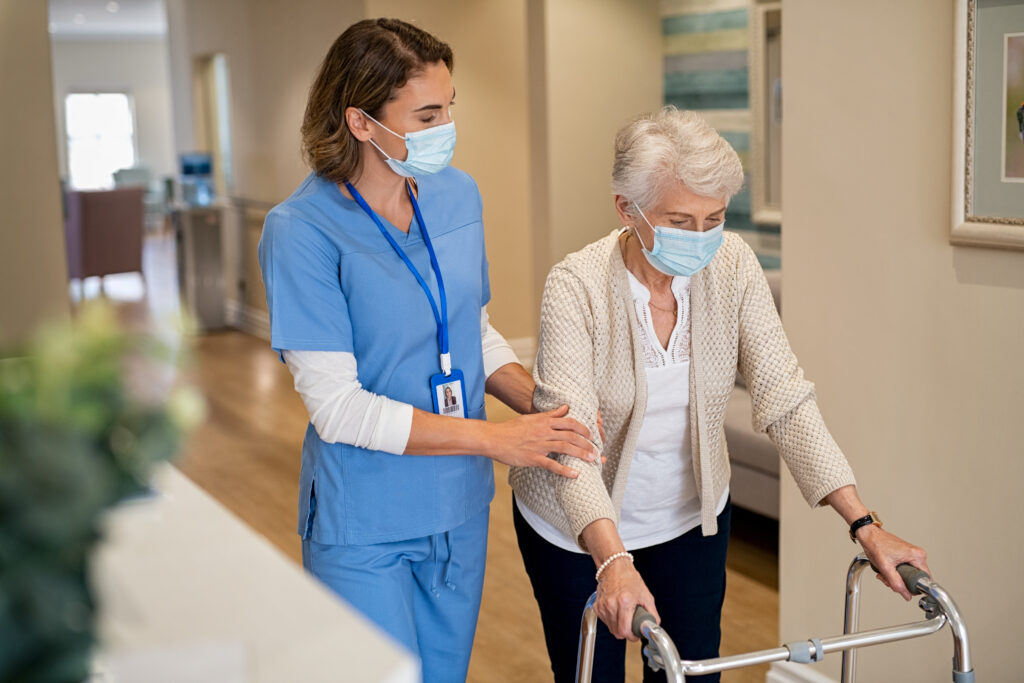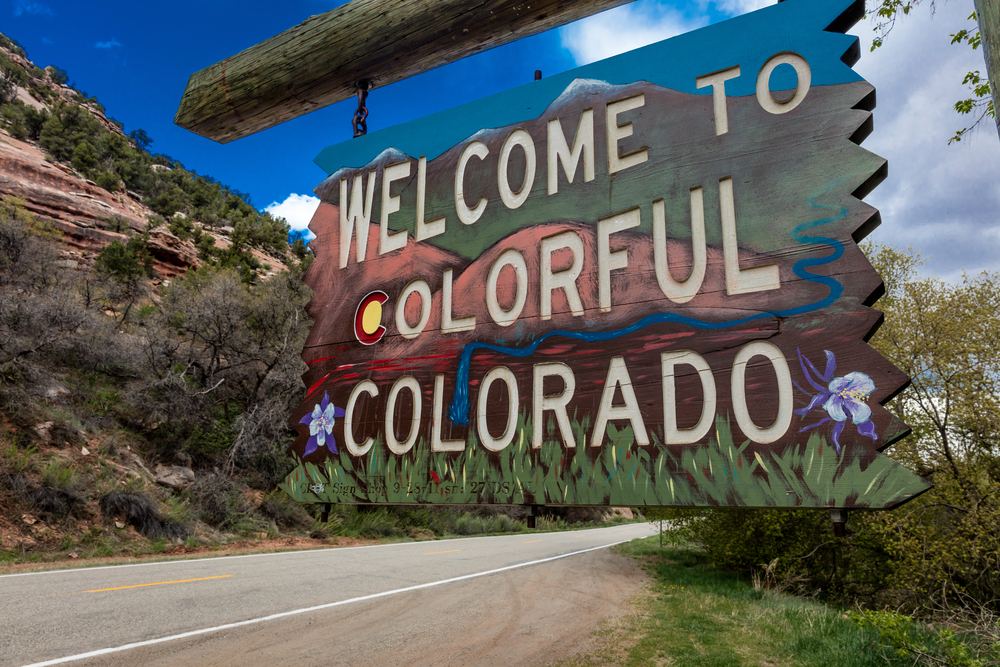Skilled Nursing in Boulder Colorado: Search Near You, How to Pay, Licensing, Local Resources, and Questions to Ask
Skilled nursing facilities in Boulder, Colorado, provide comprehensive medical care and rehabilitation services for seniors in a compassionate and supportive environment. Colorado’s high ranking of 7th in the nation for assisted living reflects the state’s commitment to quality senior care, ensuring top-notch services and amenities. Boulder’s skilled nursing facilities offer personalized care plans, professional medical staff, and a range of therapeutic activities to promote health and well-being.
Skilled Nursing Facility Communities near Boulder, Colorado
Adara Living
Broomfield, CO 80020
Ahc Of Lakewood, Llc
Lakewood, CO 80215
Allison Care Center
Lakewood, CO 80214
Arbor View Care Center
Arvada, CO 80004
Arvada Care And Rehabilitation Center
Arvada, CO 80003
Berthoud Care And Rehabilitation
Berthoud, CO 80513
Cambridge Care Center
Lakewood, CO 80214
Center At Northridge, Llc, The
Westminster, CO 80234
Lakeside Post Acute
Wheat Ridge, CO 80033
Denver North Care Center
Denver, CO 80205

About Skilled Nursing in Boulder, CO
In Boulder, Colorado, skilled nursing is defined as a high level of medical care provided by licensed health professionals, including registered nurses, therapists, and physicians. This type of care is designed for individuals who require continuous medical supervision and assistance with daily activities due to chronic illnesses, post-surgery recovery, or significant health conditions. Services provided in skilled nursing facilities include 24/7 nursing care, medication management, physical, occupational, and speech therapies, and personalized care plans tailored to each resident’s needs. These facilities also offer rehabilitation programs, nutritional support, and social activities to promote overall health and well-being, ensuring that residents receive comprehensive care in a safe and supportive environment.
A skilled nursing facility is the building
Skilled nursing facilities offer 24-hour care and medical services, which include intermediate care and rebab and therapeutic care, all provided by licensed nurses and support professionals. Usually, skilled nursing is short-term acute care but may also offer long term care and intermediate care.
SNF, “skilled nursing facility” is the umbrella under which different care levels operate. “Nursing Home” is a common term used when referring to any/all senior living, although the term is a bit outdated.

Skilled nursing: Care that requires the skill of a nurse
Skilled Nursing is for seniors who may have planned surgeries or procedures (knee or hip replacement, etc.) and those individuals with acute or unplanned medical issues (Sepsis, cellulitis, UTI, etc). The oversight of a nurse may be required because care is not predictable and able to be preformed on a set schedule.
Levels of care offered in a skilled nursing facility
It is important to understand the differences between care services.
Rehabilitation and Therapy
- This is treatment for an injury, illness, or pains with the goal restoring function, including nursing and therapy services.
- The rehab plan is ordered by a physician. The services are provided by nurses and physical, occupational, and speech therapists.
Intermediate Care Facility (ICF)
- These are nursing facilities most suited for individuals who need 24-hour medical oversight in a well-structured setting.
- Often times, residents share a room and they are encouraged to bring personal items to create a more home-like environment.
Long-term Care
- Care provided by different caregivers in different settings.
- Assists with activities of daily living (ADLs).
- Care is not scheduled or predictable.
Examples of care provided at a Skilled Nursing Facility include:
- Skilled Nursing offers 24-hour skilled nursing care and medical services administered by licensed nurses and support professionals.
- This is the highest level of care provided that is not a hospitalization.
- A physician oversees the care of the individual.
- Trained staff assist with activities of daily living like bathing, dressing, feeding, using the bathroom and getting in and out of bed.
- Physical, occupational, speech, and respiratory therapy.
- Regular monitoring of heart rate, blood pressure, or blood sugar.
- IV therapy
- Wound and post-surgery care.
- Injected medications.
Considerations when looking for Senior housing in Boulder, CO
There are 6 skilled nursing facilities in Boulder, Colorado. The estimated population of Boulder is 105,898 with 12.2% of that number being those ages 65 and older. In Boulder, the summers are warm; the winters are very cold, snowy, and windy; and it is partly cloudy year round. Over the course of the year, the temperature typically varies from 22°F to 87°F and is rarely below 6°F or above 95°F.
Cities near Boulder, CO
- Louisville, CO – Southeast, approximately 9 miles
- Lafayette, CO – East, approximately 11 miles
- Longmont, CO – Northeast, approximately 15 miles
- Superior, CO – Southeast, approximately 8 miles
- Broomfield, CO – Southeast, approximately 13 miles
Pricing and How to Pay for Skilled Nursing
Paying for senior care depends on several factors. On average, residents can expect to pay $11,224 per month for assisted living services. These fees encompass personalized care, engaging activities, and comfortable accommodations, ensuring a fulfilling retirement experience. Keep in mind these costs may fluctuate depending on factors such as location and facility amenities.

Paying for Senior Living and Care will vary depending on a few factors. For instance, the level of care needed; the income and savings of the resident; the state and location of the community; or if the resident is a veteran. In the United States there are over 400 programs that may offer some monetary relief for senior care, but often the majority of costs are covered by private funds and family assistance. These funds come from our Federal, State, and Local Governments.
It is important to take your time when exploring payment and coverage options.
Private pay – YES:
- Many families pay for assisted living with private funds.
- Private pay can be a combination of retirement funds, personal savings, and pension payments.
- Family members may contribute funds to pay for assisted living or other senior housing and care.
Medicare -MAYBE:
Medicare will TYPICALLY cover Skilled Nursing (SNF) care ONLY under these factors:
- People 65 years and older and individuals with end stage renal disease are eligible for Medicare benefits, no matter their income.
- Coverage is meant for people in need of short-term care.
- The person has Medicare Part A, and has available days left in their benefit period. The person has a qualified hospital stay. (3 consecutive midnights or more)
- The individual must enter SNF within 30 days of leaving the hospital.
- The person’s doctor has ordered inpatient services at a skilled nursing facility.
- The individual must need and receive the skilled care daily. The care provided must be care that the person can only receive in a SNF.
- The person needs skilled services because of an ongoing condition or a new condition that started while in a SNF for treatment of an ongoing condition.
- The skilled services must be reasonable and necessary for the treatment of the condition.
- You must receive the care in a Medicare certified SNF.
Medicaid – MAYBE:
Medicaid can be a payer source if the patient needs both care and has a financial hardship based on the individual state criteria. Eligible participants include: low-income adults, elderly adults and people with disabilities. The program is funded jointly by each state and the federal government; and national guidelines are in place do decipher how states must spend Medicaid money, but with allowances toward the guidelines. Every state has their own individual Medicaid assistance program. Each state determines what levels of care will be covered by Medicaid, who is eligible, and how much the state will reimburse the care community.
- Skilled nursing falls under Medicaid’s Nursing Facility Services.
- People who are eligible for Medicaid must meet the state criteria for skilled nursing care.
- The state of residency must abide by federal law and regulations when setting their skilled nursing care requirements.
- The patient meets the state guidelines for income and asset limits.
If you are unsure whether you qualify for Medicaid, you should apply. You may be eligible depending on your household income, family size, age, disability and other factors.For a clearer understanding on coverage contact your State Health Insurance Assistance Program.
Long-term Care Insurance – MAYBE:
Long term care insurance is a great way to pay for assisted living, and planning ahead is important when considering how to pay for senior housing and care. Nearly 75% of people over the age of 65 will require long-term care services at some point, so naturally, buying into long-term care insurance when a person is in their 50s and 60s is the most common time to do so.
- Long-term care insurance helps cover the costs of chronic medical conditions.
- Individuals and couples with the ability to pay into long-term care insurance have the advantage of a head start in allocating funds for senior care.
Veteran Aid and Assistance – MAYBE:
This benefit is available to some military veterans and surviving spouses who live in an assisted living community and those who have in-home care.
- There are specific guidelines, but a veteran may qualify for as much as $2,050 each month.
- A veteran with a sick spouse may be eligible for $1,600 per month.
- If a veteran has passed, their surviving spouse can qualify for $1,300 per month.

Questions to ask a skilled nursing facility
- Is the facility licensed?
- Has the facility’s license ever been revoked?
- Is the facility Medicare/Medicaid certified?
- What types of insurance is accepted?
- Are all specific medical needs able to be met?
- What services are offered?
- What is the rate for basic care?
- Are any reviews available to be seen by the public?
- Are protocols in place to ensure healthy, balanced meals?
- What if an individual has specific dietary restrictions, can they be met at the facility?
Additional questions and inquiries to ask skilled nursing facilities
- What should a new resident (patient) bring with them?
- What is the difference between skilled nursing and assisted living?
- What happens in case of an emergency?
- Can the family pet visit the resident?
- What is the level of privacy?
- What are the available social activities?
- What is the hours for family visits?
- Can patients request special meals for dietary needs?
- Are skilled nursing facilities connected to hospitals?
- How big are the rooms?
- What are the training requirements of skilled nurses?
Local Hospitals and Healthcare Providers in Boulder, CO
Boulder Community Health
- Address: 1100 Balsam Ave, Boulder, CO 80304
- Phone: (303) 415-7000
Foothills Hospital
- Address: 4747 Arapahoe Ave, Boulder, CO 80303
- Phone: (303) 415-7000
UCHealth Boulder Health Center
- Address: 5495 Arapahoe Ave, Boulder, CO 80303
- Phone: (720) 848-9200
Boulder Medical Center
- Address: 2750 Broadway, Boulder, CO 80304
- Phone: (303) 440-3000
Avista Adventist Hospital
- Address: 100 Health Park Dr, Louisville, CO 80027
- Phone: (303) 673-1000
Local Resources and Links – Colorado
Area Agency on Aging Boulder County offers services to adults 60 and over and their adult caregivers. They also provide assistance to Medicare beneficiaries and residents of any age who live in a long-term care facility. Provides information, referral, and options counseling to anyone 18 or older with a disability as well as to older adults through the Aging and Disability Resource for Colorado program. Legal assistance is offered via one of our contractors, not directly.
Denver Regional Council of Governments Provides information and assistance for people 60 and older or 18-plus with a disability, their families, and service providers. Referrals to local resources and services.
Larimer County Office on Aging The Larimer County Office on Aging LCOA provides Information and Referral through the ADRC, Title III services including In Home Services Voucher, Chore Voucher, Respite Voucher, application assistance and options counseling. Additional services include grant management and long term care ombudsman program community education and key member of the Partnership for Age Friendly Communities in Larimer County.
Park County Department of Human Services Adult Protection Services (APS) are provided to at-risk adults age 18 and older who, due to age or disability, are unable to protect themselves and have no one to advocate on their behalf. The Adult Protection program responds to reports of Abuse (physical or sexual), Neglect (caregiver or self), and Financial Exploitation.
Pikes Peak Area Council of Governments PPACG serves as the Area Agency on Aging for Colorado Springs and provides programs and services for older adults and their caregivers. A person must be 60 years of age or older to be eligible for a service provided by the Older Americans Act (OAA).
Disability Law Colorado offers legal representation, information and referrals to people with disabilities, older people, and their families.
Eldercare Locator This is a great resource to search for specific care in specific counties and cities. This database is a nationwide resource that connects older Americans and their caregivers with trustworthy local support resources. Connect with services such as meals, home care or transportation, or a caregiver education or respite from caregiving responsibilities. The Eldercare Locator is a public service of the Administration on Aging (AoA), an agency of the U.S. Administration for Community Living.
Medicare provides a search feature to find & compare providers near you, most senior housing and care providers are included on CareAvailability.com. Find & compare plans in your area. Determine if you qualify for premium savings
Medicaid offers information on how to apply for Medicaid, eligibility criteria, links to local state offices, and additional resources
The Alzheimer’s Association is the leading voluntary health organization in Alzheimer’s care, support, and research. Whether you are living with Alzheimer’s or caring for someone with the disease, information and resources are available.
Search other areas for skilled nursing
Not finding what you’re looking for? Take a look below.
